
Aburi: The Scenic Hilltop Retreat of Ghana
Located in the Eastern Region of Ghana, Aburi is a picturesque hilltop town known for its cool climate and lush greenery. Just an hour's drive from the bustling city of Accra, Aburi offers a refreshing escape with stunning views of the surrounding hills and valleys. One of the main attractions is the Aburi Botanical Gardens, established in 1890. The gardens are home to a diverse array of tropical plants, towering trees, and beautifully landscaped paths. Visitors can enjoy a leisurely stroll through the gardens, learn about the local flora, and even have a picnic under the shade of ancient trees. For those interested in history, the Aburi Gardens also house colonial-era buildings and monuments, offering a glimpse into Ghana's past. The town itself is dotted with charming guesthouses and cozy cafes, where you can relax and soak in the serene atmosphere. The local markets are vibrant, selling everything from fresh produce to handcrafted souvenirs. Don't miss the chance to try some local delicacies like 'kelewele' (spicy fried plantains) and 'abolo' (steamed corn bread). Adventure seekers can explore the nearby Aburi Mountains, which provide excellent opportunities for hiking and mountain biking. The views from the top are breathtaking, and you'll often find local guides willing to share their knowledge of the best trails and hidden gems. Whether you're a nature lover, history buff, or just in need of some peace and quiet, Aburi has something to offer everyone.
Local tips in Aburi
- Visit early in the day to enjoy the cool morning breeze and avoid the midday heat.
- Hire a local guide at the Aburi Botanical Gardens for a more informative experience.
- Bring a hat and sunscreen, as the sun can be quite strong despite the cool climate.
- Try the local street food for an authentic taste of Ghanaian cuisine.
- Wear comfortable shoes for walking, especially if you plan to hike the Aburi Mountains.
Aburi: The Scenic Hilltop Retreat of Ghana
Located in the Eastern Region of Ghana, Aburi is a picturesque hilltop town known for its cool climate and lush greenery. Just an hour's drive from the bustling city of Accra, Aburi offers a refreshing escape with stunning views of the surrounding hills and valleys. One of the main attractions is the Aburi Botanical Gardens, established in 1890. The gardens are home to a diverse array of tropical plants, towering trees, and beautifully landscaped paths. Visitors can enjoy a leisurely stroll through the gardens, learn about the local flora, and even have a picnic under the shade of ancient trees. For those interested in history, the Aburi Gardens also house colonial-era buildings and monuments, offering a glimpse into Ghana's past. The town itself is dotted with charming guesthouses and cozy cafes, where you can relax and soak in the serene atmosphere. The local markets are vibrant, selling everything from fresh produce to handcrafted souvenirs. Don't miss the chance to try some local delicacies like 'kelewele' (spicy fried plantains) and 'abolo' (steamed corn bread). Adventure seekers can explore the nearby Aburi Mountains, which provide excellent opportunities for hiking and mountain biking. The views from the top are breathtaking, and you'll often find local guides willing to share their knowledge of the best trails and hidden gems. Whether you're a nature lover, history buff, or just in need of some peace and quiet, Aburi has something to offer everyone.
When is the best time to go to Aburi?
Iconic landmarks you can’t miss
Kwame Nkrumah Memorial Park & Mausoleum
Discover the historical significance of Kwame Nkrumah Memorial Park & Mausoleum, a serene tribute to Ghana's first president in Accra.

Elmina Castle
Explore Elmina Castle, a UNESCO World Heritage site in Ghana, and confront the poignant history of the transatlantic slave trade through its haunting dungeons and the 'Door of No Return'.
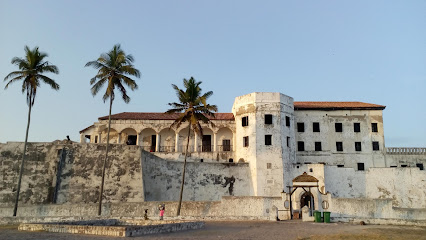
Kakum National Park
Discover the breathtaking beauty and rich biodiversity of Kakum National Park, a premier destination for nature lovers and adventure seekers in Ghana.
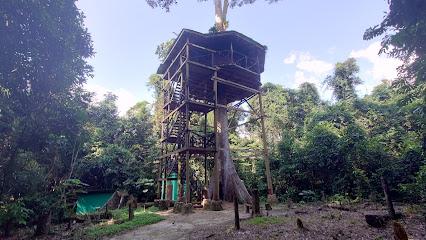
Legon Botanical Gardens Ghana..
Discover the tranquility of Legon Botanical Gardens, a lush oasis in Accra, Ghana, perfect for nature lovers and families seeking outdoor adventure.
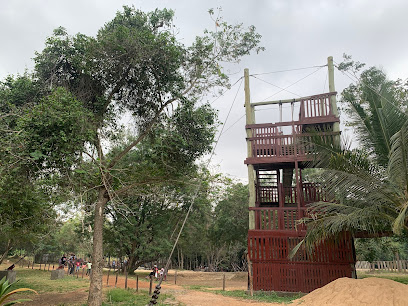
Centre for National Culture
Discover Ghana's vibrant culture at the Centre for National Culture in Accra, a bustling hub of traditional arts, crafts, performances, and historical exhibits that embody the nation's heritage.
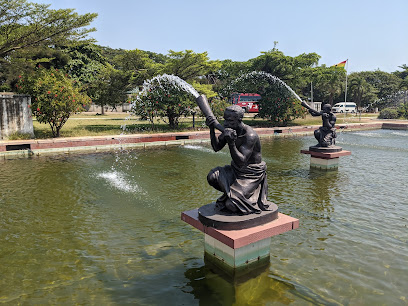
W.E.B Du Bois Memorial Centre for Panafrican Culture - Ghana.
Explore the life and legacy of W.E.B. Du Bois, a champion of Pan-Africanism, at his former home and final resting place in Accra, a center for cultural exchange and historical reflection.
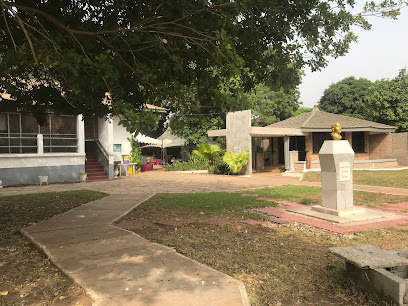
Hillburi
Escape to Hillburi in Aburi: A serene mountain retreat offering breathtaking views, exquisite dining, and a perfect blend of relaxation and adventure in the heart of Ghana's Eastern Region.
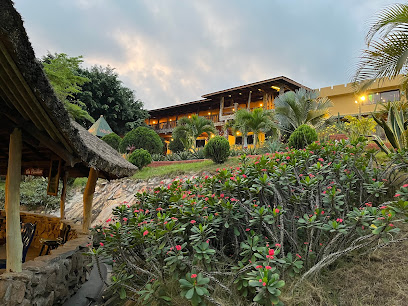
National Museum of Ghana
Discover the essence of Ghanaian culture and history at the National Museum of Ghana, a treasure trove of artifacts in the heart of Accra.
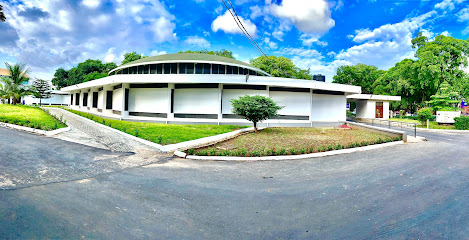
Valco Roundabout
Discover the vibrant heart of Tema at Valco Roundabout, a historical landmark where community, commerce, and culture converge, offering an authentic Ghanaian experience.
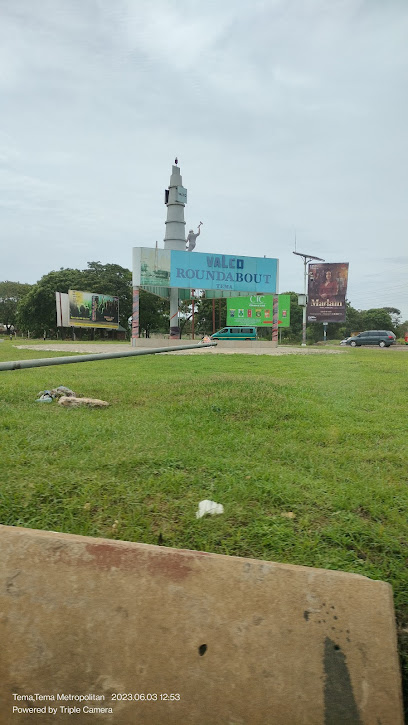
Boti Waterfalls
Experience the breathtaking beauty of Boti Waterfalls, a serene escape into Ghana's lush landscapes and a must-visit for nature lovers.
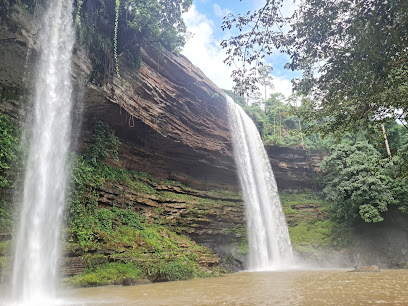
Jamestown Lighthouse
Explore Accra's maritime history at the Jamestown Lighthouse, offering panoramic views and a glimpse into the vibrant culture of Ghana's oldest district, Jamestown.
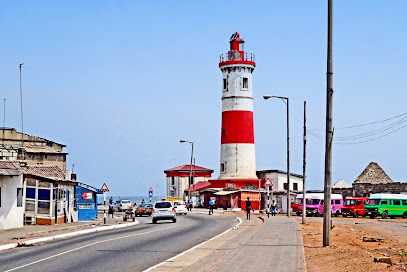
Peduase Lodge
Discover the historical Peduase Lodge in Aburi, Ghana, a former presidential retreat with breathtaking views, offering a glimpse into the nation's past and the serene beauty of the Akuapem Ridge.
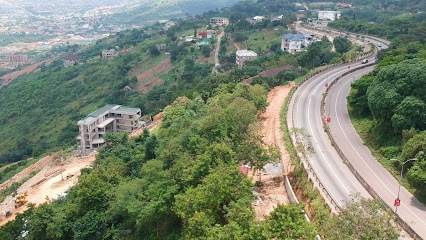
Fort James
Explore Fort James in Accra, Ghana: A historic fortress offering a poignant journey through the transatlantic slave trade and Ghana's colonial past, with stunning coastal views.
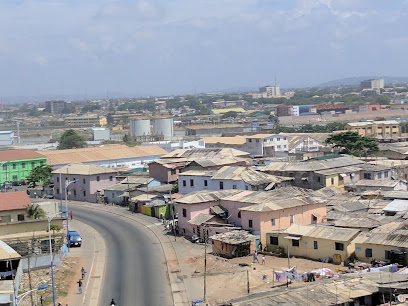
Osu Castle
Explore Osu Castle, a historic museum in Accra, Ghana, showcasing the rich colonial history and cultural significance of this iconic fortress.
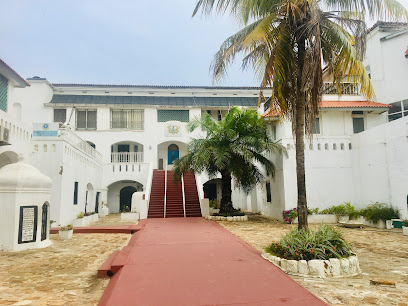
Aburi Botanical Gardens & Park | TortoisePath.com
Explore the lush beauty of Aburi Botanical Gardens, a serene retreat in Ghana showcasing diverse plant life and stunning landscapes.
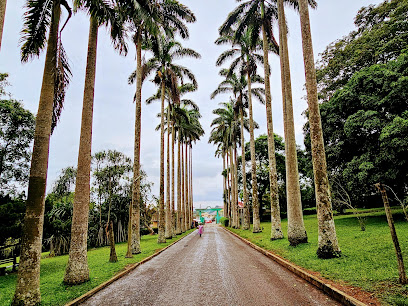
Unmissable attractions to see
Rufus Green Parks
Experience the tranquility of Rufus Green Parks, a lush garden oasis perfect for relaxation, picnics, and enjoying Ghana's natural beauty.
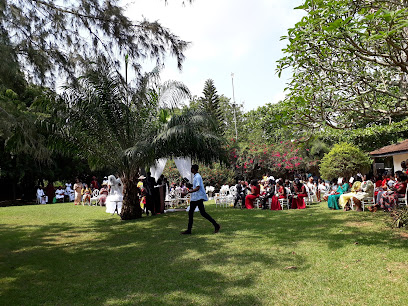
Ayi Mensah Hiking Trail | TortoisePath.com
Discover the Ayi Mensah Hiking Trail, a stunning natural escape near Accra, Ghana, perfect for hiking enthusiasts and nature lovers seeking adventure.
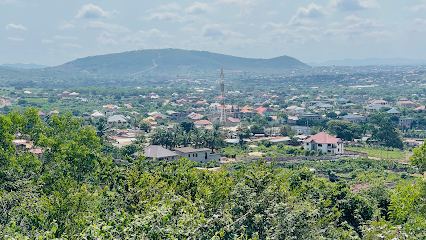
Papaye Recreational Village
Experience nature's beauty at Papaye Recreational Village, a family-friendly park in Pokrom Nsabaa with attractions for all ages.
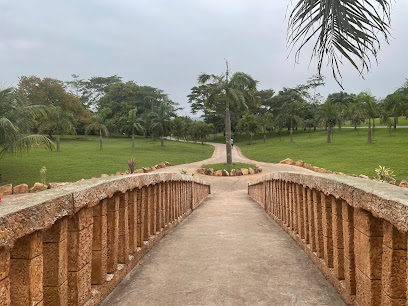
Africa Housing Estate / Mountain-Foot Botanical Garden.
Discover the serene beauty of Africa Housing Estate and Mountain-Foot Botanical Garden, a lush retreat in Accra showcasing diverse flora and peaceful landscapes.
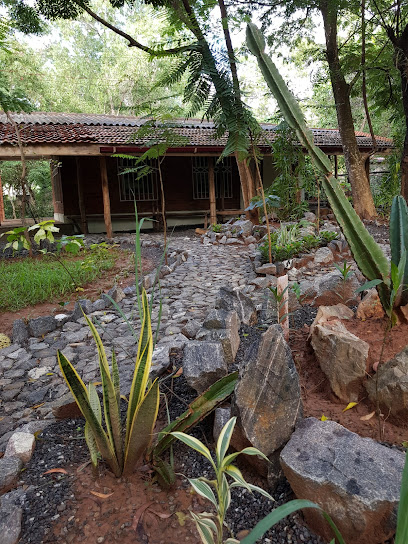
Bendu Village Resort
Discover the tranquility of Bendu Village Resort in Aburi, a blend of natural beauty and modern comfort in Ghana's lush hills.
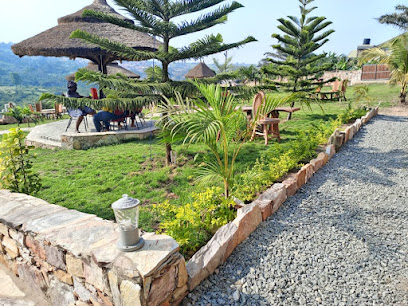
Papaye Gardens, Konkonuru
Explore the serene beauty of Papaye Gardens in Pokrom Nsabaa, a tranquil escape filled with vibrant flora and peaceful landscapes.
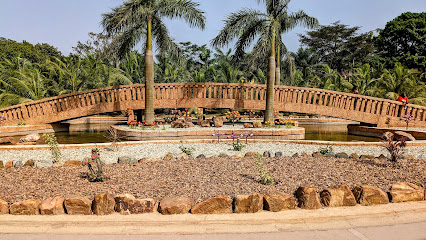
Obuo Tabiri Mountain Peaks
Experience the breathtaking beauty and rich biodiversity of Obuo Tabiri Mountain Peaks, a stunning tourist attraction in Koforidua, Ghana.
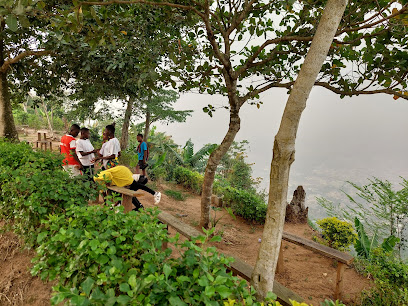
Tsenku Hiking Club
Explore the breathtaking trails of Tsenku Hiking Club in Obosomase, Ghana, and immerse yourself in nature's beauty on your next adventure.
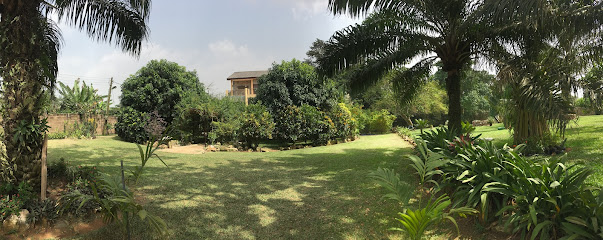
Ahyiresu Fun Park
Discover adventure and natural beauty at Ahyiresu Fun Park, a top hiking destination in Ashyresu, Ghana, perfect for nature lovers and outdoor enthusiasts.
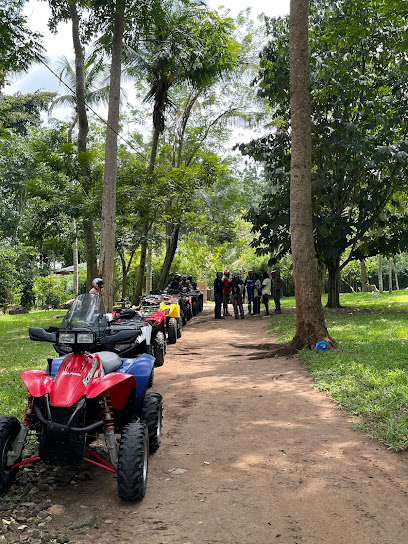
Kwame Ntow
Discover the tranquility and natural beauty of Kwame Ntow Park in Niensi, a perfect escape for relaxation and cultural immersion.
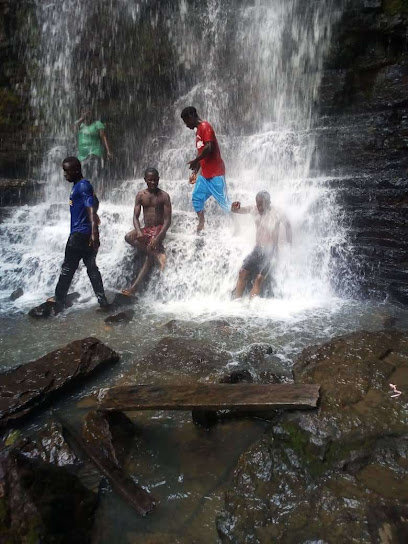
Upper Adom Falls
Explore the serene beauty of Upper Adom Falls, an ecological park in Obosomase, Ghana, where nature and adventure come together.
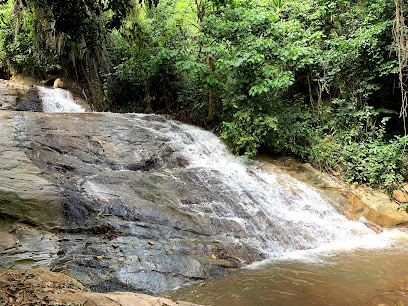
Ghana Bike and Hike Tours
Experience the breathtaking beauty of Aburi with Ghana Bike and Hike Tours - where adventure meets nature in perfect harmony.
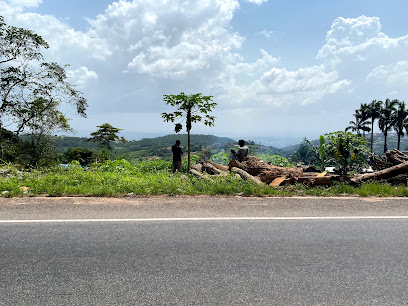
Chenku Cascade
Discover the natural beauty of Chenku Cascade in Dodowa, a tranquil retreat perfect for relaxation and adventure amidst lush landscapes.

Umbrella Rock Asifaw
Experience the breathtaking beauty of Umbrella Rock Asifaw, a stunning natural attraction in Koforidua, Ghana, perfect for nature lovers and adventure seekers.
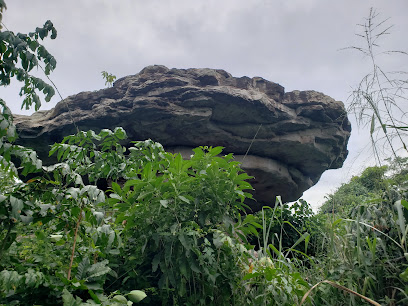
Agyemanti - Akwapim South
Explore the stunning hiking trails of Agyemanti in Akwapim South, a hidden gem in Ghana perfect for nature lovers and adventure seekers.

Essential places to dine
Hillburi
Discover culinary excellence at Hillburi in Aburi – where great food meets serene surroundings for an unforgettable dining experience.
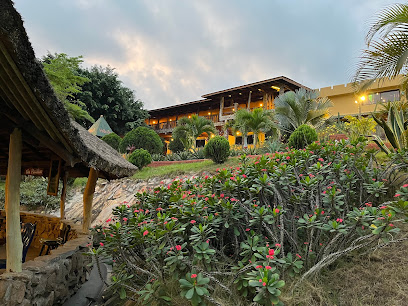
Royal Lee Hotel Aburi
Savor authentic Costa Rican cuisine amidst stunning landscapes at Royal Lee Hotel Aburi – where every meal is a cultural journey.
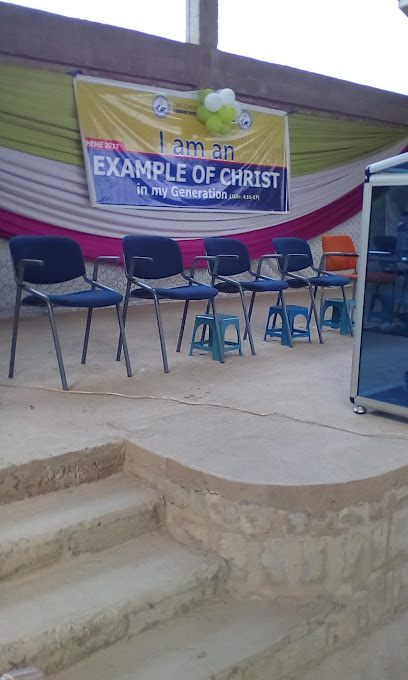
Peduase Chop House
Discover authentic Ghanaian cuisine amidst stunning views at Peduase Chop House in Aburi.
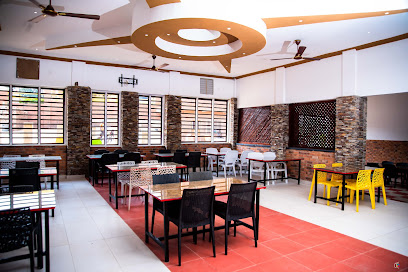
Rocky Garden Restaurant
Discover culinary delights amidst stunning views at Rocky Garden Restaurant in Aburi - a must-visit for food lovers exploring Ghana.
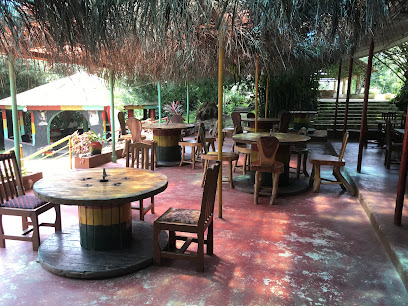
Bachelors Food & Bar
Experience vibrant flavors and warm hospitality at Bachelors Food & Bar in Aburi – where local cuisine meets stunning scenery.
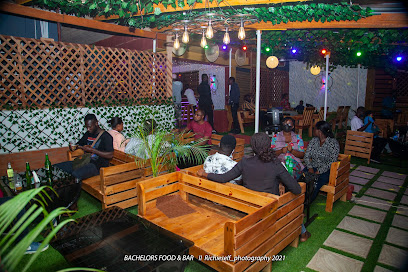
Aburi Bio Ecotourism
Experience nature's tranquility at Aburi Bio Ecotourism – your perfect getaway in Ghana's serene hills.
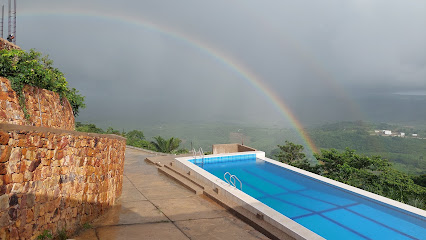
Gloryland Pub and Food Joint
Discover authentic Ghanaian cuisine at Gloryland Pub and Food Joint in Aburi – a culinary haven blending local flavors with vibrant atmosphere.
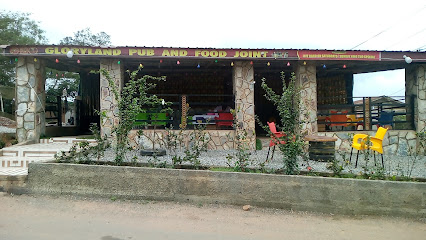
De-Guys Pub and Local Restaurant
Discover the heart of Ghanaian cuisine at De-Guys Pub and Local Restaurant in Aburi – where tradition meets flavor.
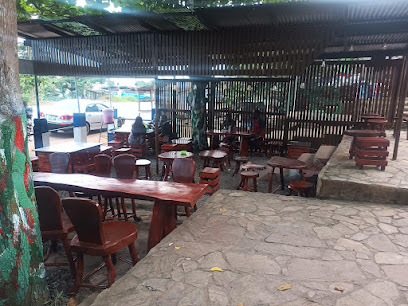
Take Chop Foods
Discover authentic Ghanaian cuisine at Take Chop Foods, where every meal tells a story amidst stunning natural beauty.
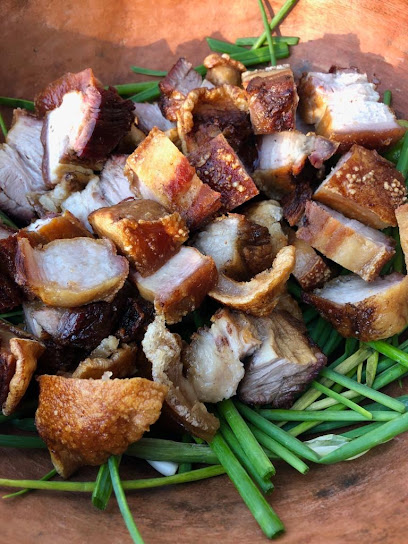
Yaa Ntomo Chop Bar
Discover authentic Ghanaian flavors at Yaa Ntomo Chop Bar in Aburi's vibrant market scene.
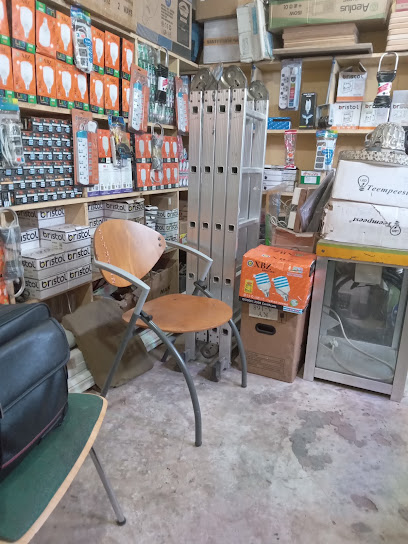
Inity Vegan Cafe & Juice Bar
Discover fresh vegan delights at Inity Vegan Cafe & Juice Bar in Aburi—where health meets taste amidst breathtaking natural beauty.
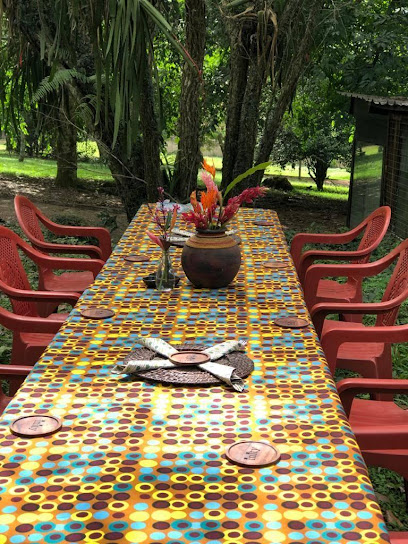
Crowther's Residence
Discover delightful barbecue flavors at Crowther's Residence in Aburi - where culinary excellence meets family-friendly fun amidst beautiful scenery.
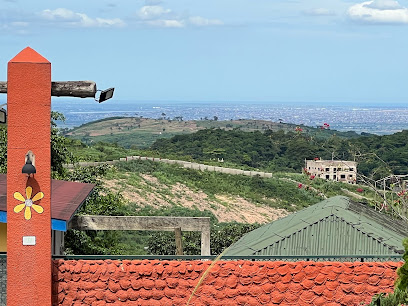
Peace Corner Restuarant And Bar
Experience authentic Ghanaian cuisine with stunning views at Peace Corner Restaurant and Bar in Aburi.
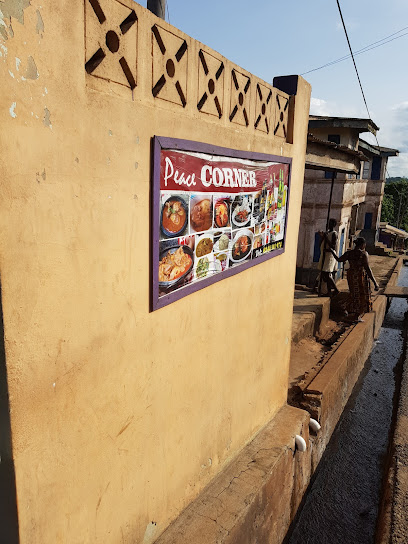
Rita's Kitchen
Discover Rita's Kitchen in Aburi: A delightful blend of local flavors and warm hospitality awaits every visitor.
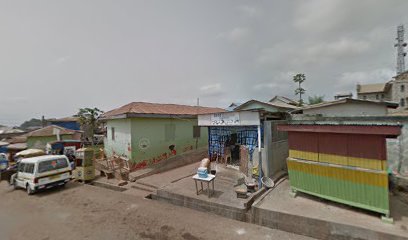
Movaron Kitchen
Experience the rich flavors of Ghana at Movaron Kitchen in Aburi - where local ingredients meet culinary artistry.
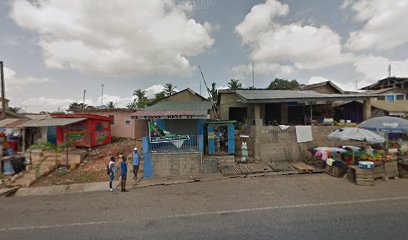
Markets, malls and hidden boutiques
Aburi Crafts Village
Discover authentic Ghanaian crafts in Aburi's serene hills, where local artistry meets cultural heritage.
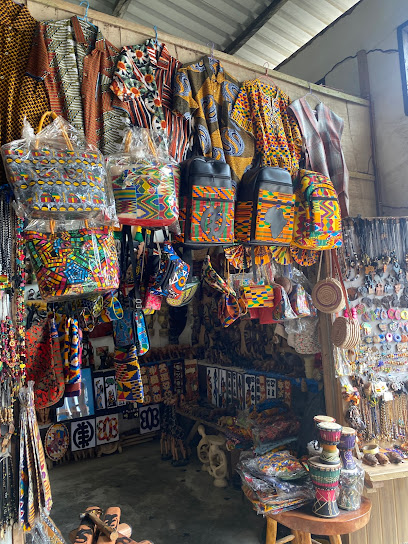
Genie's Cakery
Explore the sweet side of Aburi at Genie's Cakery, a must-visit cake shop for delicious artisanal treats and local flavors.

Valley View Rd. Total Shop
Explore authentic Ghanaian ingredients at Valley View Rd. Total Shop, your local grocery haven in Oyibi for fresh produce and traditional flavors.

Beauty Shop | Oriflame cosmetics
Explore Oriflame Cosmetics in Aburi for a transformative beauty experience with quality products and expert advice.

House of Rustic Gallery
Explore the House of Rustic Gallery in Aburi for exquisite handcrafted furniture and a taste of Ghana's rich artisanal heritage.
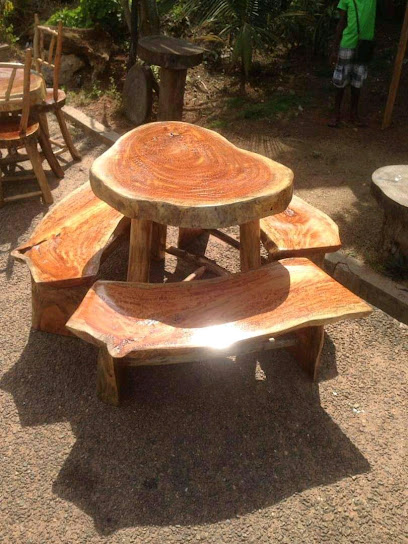
Fexsemexs
Discover cutting-edge gadgets and tech accessories at Fexsemexs, your go-to electronics store in Aburi, Ghana.
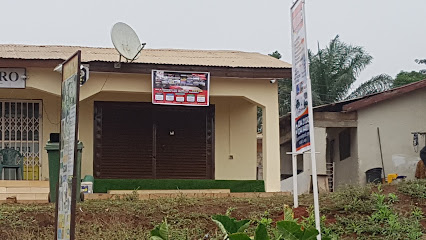
Ankobeahemea's fashions and kitchen
Experience the vibrant culture of Ghana through fashion and cuisine at Ankobeahemea's Fashions and Kitchen in Aburi.
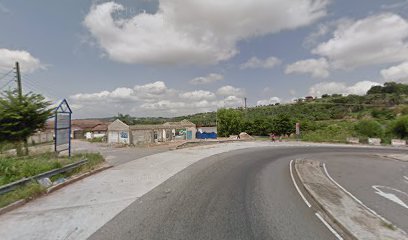
Infinity Hammocks / Infinity Craft Co.
Explore the vibrant art of hammock-making at Infinity Hammocks in Aburi Crafts Village, where comfort meets creativity in every handcrafted piece.
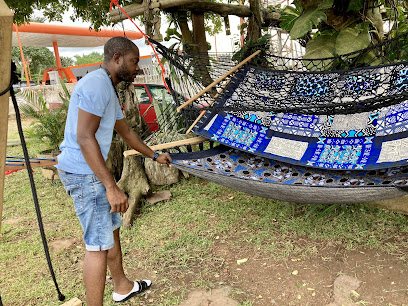
Rose plot restaurant and art
Discover the enchanting blend of culinary delights and artistic expression at Rose Plot Restaurant and Art in Aburi.
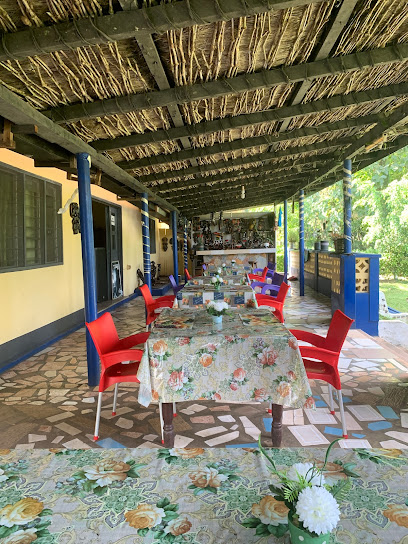
Fexsemexs Electrical
Explore Fexsemexs Electrical in Aburi for the latest electronics and exceptional customer service in a vibrant shopping atmosphere.
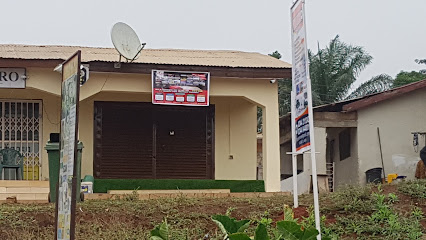
Aburi
Explore Aburi, Ghana: A serene retreat offering health and beauty experiences amidst stunning natural landscapes.
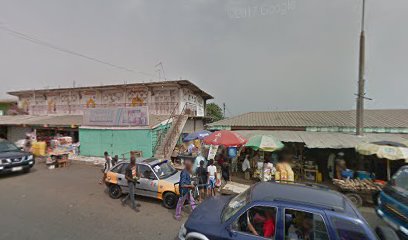
Vicopa Ventures
Vicopa Ventures is your gateway to authentic Ghanaian flavors and essential goods, making it a must-visit supermarket in Aburi.

Brocksfashionworld
Explore unique clothing collections at Brocksfashionworld in Aburi, where contemporary fashion meets traditional Ghanaian craftsmanship.

Rey’s Kollektion
Explore the vibrant world of Ghanaian fashion at Rey’s Kollektion, your go-to clothing store in Aburi for unique styles and cultural treasures.
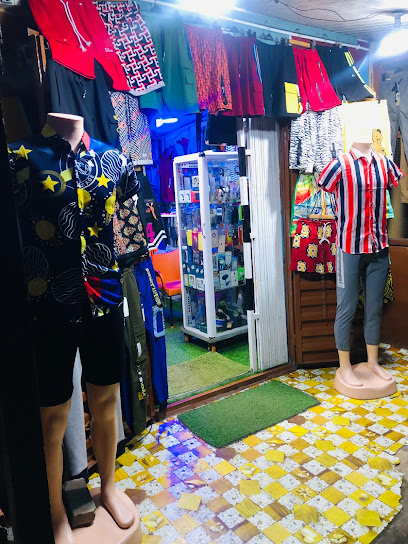
Sarah's Kitchen
Experience the best of Ghanaian baking at Sarah's Kitchen in Aburi, where every bite is a taste of local culture and culinary artistry.

Essential bars & hidden hideouts
Rocky Garden Restaurant
Experience the taste of Aburi at Rocky Garden Restaurant, where local flavors meet stunning hilltop views in a tranquil setting.
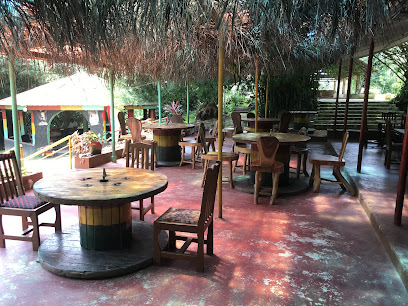
Bachelors Food & Bar
Discover Bachelors Food & Bar in Aburi, where local flavors meet international cuisine in a warm and welcoming atmosphere.
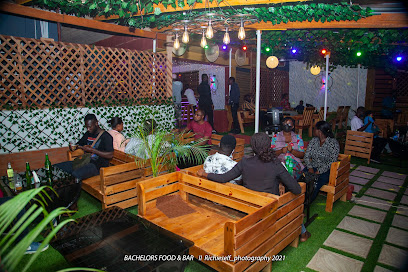
Gloryland Pub and Food Joint
Discover the vibrant flavors and welcoming atmosphere at Gloryland Pub and Food Joint in Aburi, a must-visit culinary gem in Ghana.
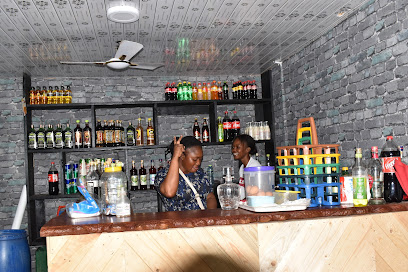
Location Pub
Discover the vibrant atmosphere of Location Pub in Aburi, a perfect blend of relaxation and local culture amidst stunning natural beauty.
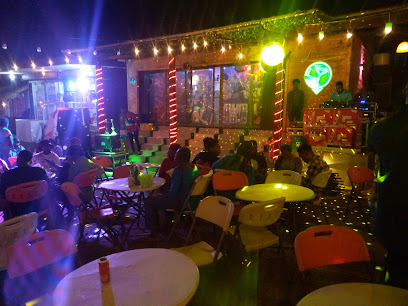
De-Guys Pub and Local Restaurant
Experience authentic Ghanaian flavors at De-Guys Pub and Local Restaurant in Aburi, where every meal is a celebration of local culture and hospitality.
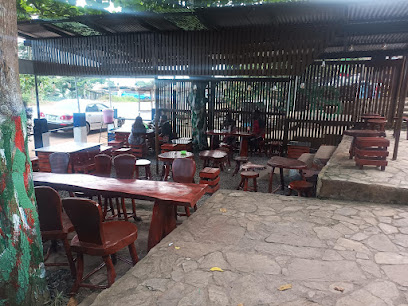
Yaa Ntomo Chop Bar
Discover authentic Ghanaian dishes in a vibrant market setting at Yaa Ntomo Chop Bar, Aburi's culinary treasure offering a true local dining experience.
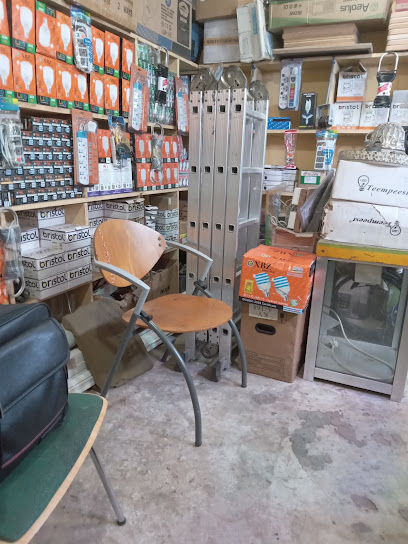
Inity Vegan Cafe & Juice Bar
Experience the essence of health and wellness at Inity Vegan Cafe & Juice Bar in Aburi, Ghana, where every dish is a step towards a healthier lifestyle.
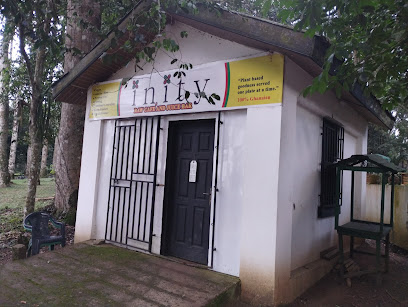
Arrow Events & Pub
Discover the vibrant nightlife of Aburi at Arrow Events & Pub, where refreshing drinks and a lively atmosphere await every traveler.
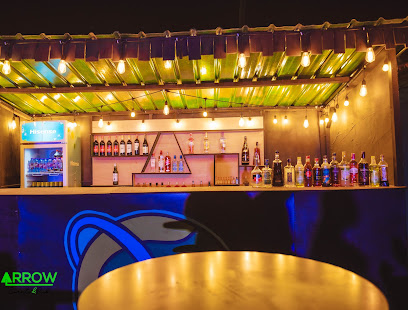
Peace Corner Restuarant And Bar
Discover the flavors of Ghana at Peace Corner Restaurant and Bar, where every meal comes with a stunning view and a warm, welcoming atmosphere.
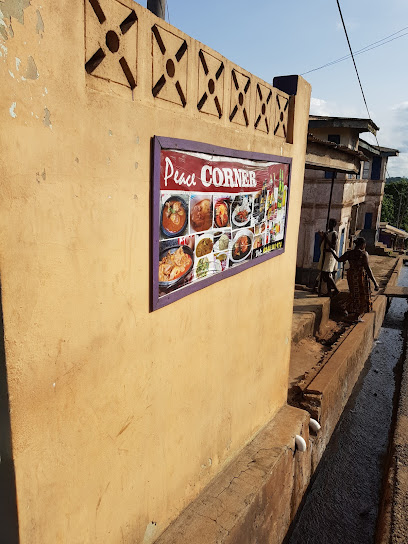
Bubbly Recreational Center
Experience the lively atmosphere of Bubbly Recreational Center in Aburi, where relaxation meets entertainment in a beautiful setting.
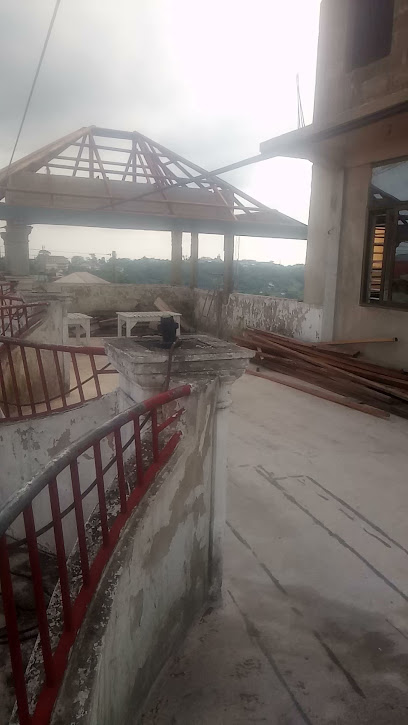
FIVE25
Experience the vibrant flavors of Africa at FIVE25 in Aburi, a culinary haven celebrating traditional recipes and local ingredients.

The Don's Bar and Grill
Experience the best of Ghanaian cuisine at The Don's Bar and Grill in Aburi, where flavor and atmosphere come together for an unforgettable dining experience.
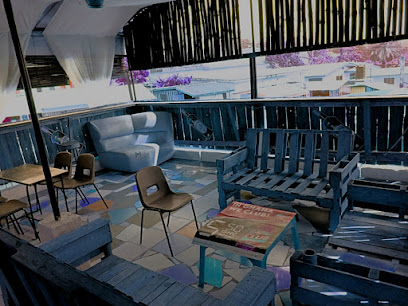
Odo-bar
Discover Odo-bar in Aburi, a perfect blend of refreshing drinks and natural beauty, ideal for relaxation and socializing.
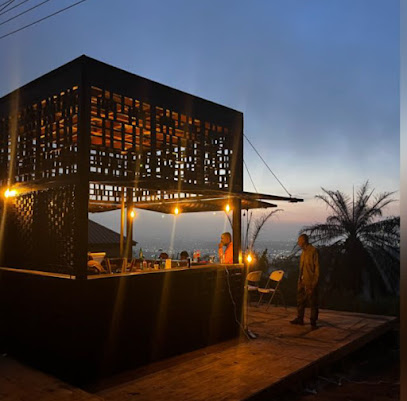
D'Blacks spot
Explore the rich flavors of Ghana at D'Blacks Spot, a grill paradise nestled in the beautiful hills of Aburi, perfect for every food lover.
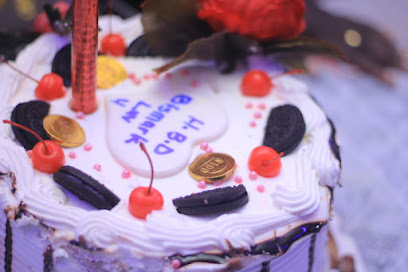
Neighbours Pub
Explore the lively Neighbours Pub in Aburi, a local favorite for drinks, music, and authentic Ghanaian nightlife.
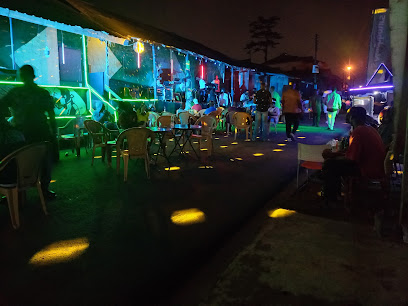
Local Phrases about Aburi
-
- HelloAane
[ah-neh] - GoodbyeDaabi
[dah-bee] - YesEyi
[eh-yee] - NoDaabi
[dah-bee] - Please/You're welcomeMesrɛ
[meh-sreh] - Thank youMedaase
[meh-dah-seh] - Excuse me/SorryMema wo akye
[meh-mah woh ah-chee-eh] - How are you?Wo ho te sen?
[woh hoh teh sen] - Fine. And you?Adidi. Na wo nso?
[ah-dee-dee. Nah woh soh] - Do you speak English?W'ani Twi?
[wah-nee chwee] - I don't understandMe nni hwee
[meh nee hwee]
- HelloAane
-
- I'd like to see the menu, pleaseMepɛ menu mu, mesrɛ
[meh-peh meh-noo moo, meh-sreh] - I don't eat meatMe nni nkwama
[meh nee en-kwah-mah] - Cheers!Afehyia pa
[ah-feh-yee-ah pah] - I would like to pay, pleaseMepɛ sika mu, mesrɛ
[meh-peh see-kah moo, meh-sreh]
- I'd like to see the menu, pleaseMepɛ menu mu, mesrɛ
-
- Help!Boa me
[boh-ah meh] - Go away!Pue
[pweh] - Call the Police!Kyerɛ Nkrantiefo
[chee-yeh en-krane-tyeh-foh] - Call a doctor!Kyerɛ dokita
[chee-yeh doh-kee-tah] - I'm lostMe ti asɛm
[meh tee ah-same] - I'm illMe yare
[meh yah-reh]
- Help!Boa me
-
- I'd like to buy...Mepɛ sesa...
[meh-peh seh-sah] - I'm just lookingMe bɔ wo nkyere
[meh boh woh in-cher-eh] - How much is it?Afei bɛn?
[ah-fay ben] - That's too expensiveAfei bɛn biara
[ah-fay ben bee-ah-rah] - Can you lower the price?Wopɛ sɛ ɔboa sika?
[woh-peh seh oh-boh-ah see-kah]
- I'd like to buy...Mepɛ sesa...
-
- What time is it?Abɔ saa na?
[ah-boh sah nah] - It's one o'clockƐda ho
[eh-dah hoh] - Half past (10)Dɔso dɛ
[doh-soh deh] - MorningAnɔpa
[ah-noh-pah] - AfternoonAwia
[ah-wee-ah] - EveningAnadwo
[ah-nah-dwoh] - YesterdayNnan
[nnahn] - TodayNnɛ
[nnay] - TomorrowƐkyiri
[eh-chi-ree] - 1Kɛkɛ
[keh-keh] - 2Fi
[fee] - 3Sɛ
[seh] - 4Nɛnɛ
[nay-nay] - 5Nan
[nahn] - 6Dɔnɔ
[doh-noh] - 7Nson
[nsohn] - 8Nanan
[nah-nahn] - 9Tɛtɛ
[teh-teh] - 10Puduo
[poo-dwoh]
- What time is it?Abɔ saa na?
-
- Where's a/the...?Ɛyɛ hia...?
[eh-yay hee-ah] - What's the address?Yɛ adirɛs mu?
[yeh ah-dee-res moo] - Can you show me (on the map)?Wopɛ sɛ ɔkɔ wo (kɔ mu)?
[woh-peh seh oh-koh woh (koh moo)] - When's the next (bus)?Ɛyɛ bɛn na ɔbɛtumi a?
[eh-yay ben nah oh-beh-too-mi ah] - A ticket (to ....)Tiket bi (kɔ ...)
[tee-keh bee (koh ...)]
- Where's a/the...?Ɛyɛ hia...?
History of Aburi
-
Aburi, a small town in the Eastern Region of Ghana, has a rich history that dates back to pre-colonial times. It was originally inhabited by the Akwapim people, who are part of the larger Akan ethnic group. The town is perched on the Akwapim-Togo mountain range, providing it with a cooler climate compared to the surrounding lowlands, which attracted settlers looking for a more temperate environment.
-
The arrival of the Basel Mission in the 19th century marked a significant turning point in Aburi’s history. The missionaries established schools, churches, and health facilities, which played a pivotal role in the development of the town. One of the most notable legacies of the Basel Mission is the Presbyterian Training College, which continues to be a center of education in the region.
-
Established in 1890, the Aburi Botanical Gardens are one of the town’s most famous landmarks. Originally created by British colonialists as an agricultural research station, the gardens were intended to introduce new crops and farming techniques to the region. Today, the gardens are a major tourist attraction, offering visitors a tranquil escape with a wide variety of indigenous and exotic plant species.
-
Aburi also played a role in Ghana’s fight for independence from British colonial rule. The town was a meeting place for key figures in the independence movement, including Kwame Nkrumah. The Aburi Conference, held in 1967, is particularly notable as it was an attempt to resolve political tensions in post-independence Ghana.
-
Today, Aburi is a thriving town that blends its rich historical heritage with modern amenities. It is a popular destination for both local and international tourists. The town’s cool climate, scenic views, and historical landmarks make it a unique spot for those looking to explore Ghana’s cultural and historical landscape.
Aburi Essentials
-
Aburi is located in the Eastern Region of Ghana, approximately 30 kilometers north of Accra, the capital city. Kotoka International Airport in Accra is the nearest international gateway. From the airport, you can hire a taxi or use a ride-hailing service to reach Aburi. The journey typically takes around one hour by road, depending on traffic. Alternatively, you can take a public bus or minibus (known locally as 'trotro') from various bus terminals in Accra heading towards Aburi.
-
Getting around Aburi is relatively straightforward. Taxis and ride-hailing services are readily available and can be used for short distances. For a more local experience, you can use trotros, which are shared minibuses that operate on set routes. Bicycles and motorbikes are also popular for getting around town. If you prefer a more leisurely way to explore, walking is a great option as many attractions are within a reasonable distance from each other.
-
The official currency in Ghana is the Ghanaian Cedi (GHS). Cash is widely accepted, and it's advisable to carry small denominations for convenience. Credit and debit cards are accepted in some hotels, restaurants, and larger shops, but not everywhere. ATMs are available in Aburi, but it's a good idea to withdraw cash in Accra before heading to Aburi to ensure you have enough funds for your visit.
-
Aburi is generally a safe destination for tourists, but standard precautions should be taken. Avoid walking alone at night in poorly lit or unfamiliar areas. Keep an eye on your belongings in crowded places, such as markets. While Aburi doesn't have specific high-crime areas targeting tourists, it's always best to stay vigilant and aware of your surroundings. Petty theft can occur, so keep valuables secure.
-
In case of emergency, dial 191 for police assistance or 193 for medical emergencies. The nearest hospital is the Aburi Presbyterian Hospital, which offers basic medical services. For serious medical issues, you may need to travel to Accra where there are more comprehensive healthcare facilities. It's advisable to have travel insurance that covers medical emergencies. Pharmacies are available in Aburi for minor health issues and over-the-counter medications.
-
Fashion: Do dress modestly, especially when visiting religious sites. Avoid wearing overly revealing clothing. Religion: Do respect local customs and traditions. Always remove your shoes when entering religious sites and dress appropriately. Public Transport: Do be courteous to other passengers and offer your seat to elderly or disabled passengers. Don't eat or drink on public transport. Greetings: Do greet people with a friendly 'akwaaba' (welcome) and a handshake. Eating & Drinking: Do try local delicacies and accept food and drink offerings graciously. Don't refuse hospitality, as it is considered impolite.
-
To experience Aburi like a local, visit the Aburi Botanical Gardens, a beautiful and serene spot popular with residents. Engage with locals at the weekly markets where you can purchase fresh produce and handmade crafts. Try local dishes such as 'fufu' and 'banku' at small, family-run eateries. For a unique experience, join a guided tour of the nearby cocoa farms to learn about Ghana's cocoa industry. Don't miss the opportunity to attend local festivals, which offer a vibrant display of culture and tradition.
Trending Landmarks in Aburi
-
Kwame Nkrumah Memorial Park & Mausoleum
-
Elmina Castle
-
Kakum National Park
-
Legon Botanical Gardens Ghana..
-
Centre for National Culture
-
W.E.B Du Bois Memorial Centre for Panafrican Culture - Ghana.
-
Hillburi
-
National Museum of Ghana
-
Valco Roundabout
-
Boti Waterfalls
-
Jamestown Lighthouse
-
Peduase Lodge
-
Fort James
-
Osu Castle
-
Aburi Botanical Gardens & Park | TortoisePath.com
Nearby Cities to Aburi
-
Things To Do in Accra
-
Things To Do in Ho
-
Things To Do in Cape Coast
-
Things To Do in Kpalimé
-
Things To Do in Lomé
-
Things To Do in Kumasi
-
Things To Do in Notse
-
Things To Do in Aneho
-
Things To Do in Sekondi-Takoradi
-
Things To Do in Takoradi
-
Things To Do in Lokossa
-
Things To Do in Atakpamé
-
Things To Do in Ouidah
-
Things To Do in Sunyani
-
Things To Do in Cotonou








